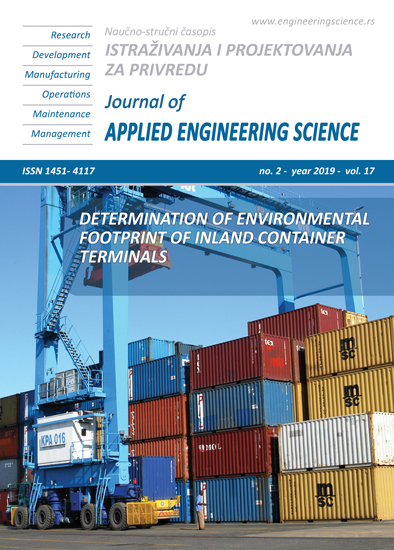LABORATORY TESTING OF POLYPROPYLENE FIBERS MIXED CEMENT-SAND MORTAR
Abstract
The polypropylene fibers are mostly used in concrete nevertheless much focus is not made on its use in mortar. This experimental activity was carried out to determine the mechanical properties of polypropylene fibers Mixed Cement-Sand Mortar. The Polypropylene Fibers Mixed Cement Sand Mortar (Type-N) contains Polypropylene Fibers randomly mixed in cement-sand mortar. This idea is based on the previous research carried out on Polypropylene Fibers Reinforced Concrete. The fibers used were microfilament fibers having length of 12 mm, diameter of 18 micron and specific gravity of 0.91. The fibers were mixed in mortar in different proportions (1%, 2% and 3% by the volume fraction) in cement-sand mortar of 1:6 (by volume fraction) and its mechanical properties were studied with control samples (Mortar with no fibers). A total of 12 tests were performed: 4 tests were performed in fresh state of mortar, 4 were performed in hardened state of mortar, and 4 tests were performed on brick masonry prisms. In fresh state, 12 samples for each test were casted and the mortar showed considerable decrease in workability, bulk density and setting time whereas the air content increased considerably with increasing PPF fraction. In hardened state, 48 samples were casted for each test and the mortar samples showed considerable decrease in compressive strength, tensile strength and flexural strength, with increasing PPF fraction. In brick masonry, 12 samples were casted for each test and the prism's flexural bond strength, shear bond strength and adhesive strength decreased considerably whereas no conclusive results were obtained from samples subjected to compressive strength testing with increasing PPF fraction. Based on the results, it was concluded that in any case the use on polypropylene fibers may be limited to 2% by volume in mortar.

